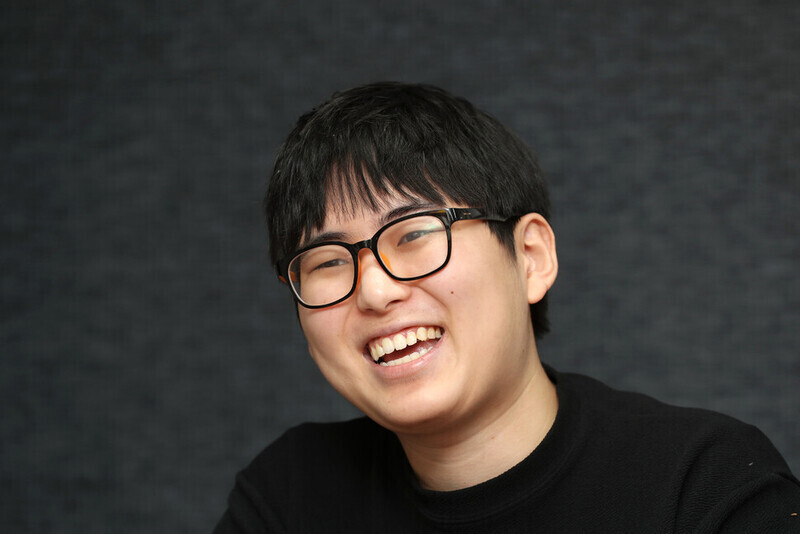hankyoreh
Links to other country sites 다른 나라 사이트 링크
[Editorial] Staff Sgt. Byun Hee-soo's case shows us that justice delayed is justice denied

On Thursday, a South Korean court ruled in favor of late Staff Sgt. Byun Hee-soo, who was forcibly discharged from the army following a gender confirmation surgery. Byun had sued the army chief of staff, asking the court to reverse the army’s decision to discharge her.
The court found that the army should not have discharged Byun on the grounds that she had a disability by the standards of a male body, considering that Byun was a woman when the army made its decision about Byun’s physical and mental fitness.
The court’s ruling is eminently sensible, but it took far too long for this obvious ruling to be made. Before she could see her discharge overturned, Byun died by suicide. This offers yet another reminder that justice delayed is justice denied, and that there’s no “next time” when it comes to guaranteeing human rights.
Byun returned to the army after receiving her gender confirmation surgery while on leave in November 2019. She wanted to continue her military service as a woman, but the army discharged her on the grounds of having a “physical and mental disability” in January 2020.
Byun asked the army to postpone its review of her discharge until the court ruled on her pending request to alter her legal gender. The National Human Rights Commission of Korea (NHRCK) granted Byun’s request for emergency relief and added its recommendation that the review be postponed, but the army ignored that, too.
For more than a year after leaving the army, Byun kept fighting to return to the military, which she’d regarded as a vocation. She held several press conferences at which she spoke of the unfairness of her forcible discharge, and she also filed a personnel complaint with the army. When her complaint was dismissed, she filed an administrative lawsuit in August 2020.
The army studiously ignored these opportunities to correct its mistake.
In July 2020, the Office of the UN High Commissioner for Human Rights submitted its opinion to the Korean government that “the dismissal of Ms. Byun would violate the right to work and the prohibition of discrimination based on gender identity under international human rights law.” Then in December, the NHRCK recommended that the army reverse the discharge and set up a system to prevent such events going forward.
But the army refused to budge. For Byun, this situation must have felt like an insurmountable barrier. In that sense, her death should be regarded as a “social murder” resulting from discrimination, exclusion, and hatred of LGBT people.
The court ruled in Byun’s favor 624 days after she was forced to leave the army. But by that time, the person who’d been looking forward to that news the most was no longer with us. If the military had only accepted the NHRCK’s recommendation at the end of 2020, Byun could have gone back to her life in the military.
We hope the military leadership will feel sincere remorse, belated as it would be, for taking the life of a soldier who’d been so fiercely devoted to the military. The first step in that direction would be not attempting to appeal the court’s decision. The military also needs to dedicate itself to systemic reform to rid the army of discrimination.
Please direct questions or comments to [english@hani.co.kr]

Editorial・opinion
![[Editorial] Perilous stakes of Trump’s rhetoric around US troop pullout from Korea [Editorial] Perilous stakes of Trump’s rhetoric around US troop pullout from Korea](https://flexible.img.hani.co.kr/flexible/normal/500/300/imgdb/original/2024/0509/221715238827911.jpg) [Editorial] Perilous stakes of Trump’s rhetoric around US troop pullout from Korea
[Editorial] Perilous stakes of Trump’s rhetoric around US troop pullout from Korea![[Guest essay] Preventing Korean Peninsula from becoming front line of new cold war [Guest essay] Preventing Korean Peninsula from becoming front line of new cold war](https://flexible.img.hani.co.kr/flexible/normal/500/300/imgdb/original/2024/0507/7217150679227807.jpg) [Guest essay] Preventing Korean Peninsula from becoming front line of new cold war
[Guest essay] Preventing Korean Peninsula from becoming front line of new cold war- [Column] The state is back — but is it in business?
- [Column] Life on our Trisolaris
- [Editorial] Penalties for airing allegations against Korea’s first lady endanger free press
- [Editorial] Yoon must halt procurement of SM-3 interceptor missiles
- [Guest essay] Maybe Korea’s rapid population decline is an opportunity, not a crisis
- [Column] Can Yoon steer diplomacy with Russia, China back on track?
- [Column] Season 2 of special prosecutor probe may be coming to Korea soon
- [Column] Park Geun-hye déjà vu in Yoon Suk-yeol
Most viewed articles
- 1‘Free Palestine!’: Anti-war protest wave comes to Korean campuses
- 2[Editorial] Perilous stakes of Trump’s rhetoric around US troop pullout from Korea
- 3Behind-the-times gender change regulations leave trans Koreans in the lurch
- 4Nuclear South Korea? The hidden implication of hints at US troop withdrawal
- 5Korean president’s jailed mother-in-law approved for parole
- 6[Photo] ‘End the genocide in Gaza’: Students in Korea join global anti-war protest wave
- 7In Yoon’s Korea, a government ‘of, by and for prosecutors,’ says civic group
- 8Korea likely to shave off 1 trillion won from Indonesia’s KF-21 contribution price tag
- 9With Naver’s inside director at Line gone, buyout negotiations appear to be well underway
- 1060% of young Koreans see no need to have kids after marriage